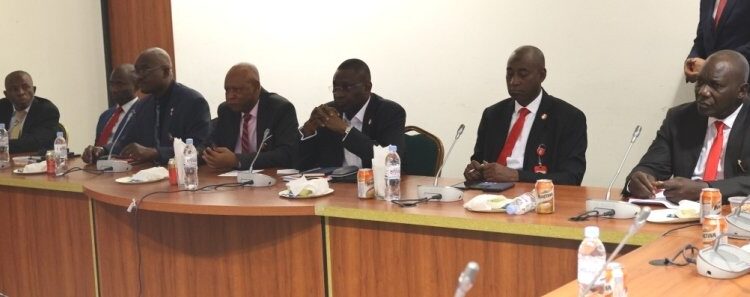
The Economic and Financial Crimes Commission (EFCC), has recently on Tuesday, presented a budget of N76bn as its budget proposal for 2024 to the House of Representatives Committee on Financial Crimes.


The proposed budget represents a 53.48% increase above the commission’s 2023 appropriation of N49.9bn.
This was disclosed on its X handle on Tuesday, December 6.
In the budget estimate, N37bn was proposed as personnel cost, N14.5bn as overhead cost, and N25bn as capital cost.
The commission’s Executive Chairman , Ola Olukoyede, explained that the sum of N36.835bn was appropriated as the commission’s personnel cost for the year, “out of this figure, the sum of N28.452 bn representing 77% has been released for the payment of salary and allowances of staff on the Commission’s payroll between January and November 2023.
He however added that the sum of N7.024bn, representing 67% of the N10.535bm appropriated for the Commission for its overhead cost in 2023, has been released.”
The post read, “Presenting the budget to the House of Representatives Committee on Financial Crimes, Executive Chairman of the EFCC, Ola Olukoyede, stated that the 2024 proposed estimate of N76.486 billion represented a significant increase over 2023’s N49.901 billion budget owing to additional funds needed for overhead, personnel and capital costs.
“This increase is solely attributable to the increase in personnel cost from N36.834billion to N37.074billion in 2024, overhead cost from N10.535billion to 14.513billion in 2024 and capital cost from N2.531billion to N25 billion in 2024,” he said.
“The EFCC Chairman stated that the Commission’s request for additional funds for overhead is due to the high cost of air travel tickets, motor vehicle fuel cost, diesel costs, and the high cost of maintenance of buildings, operational vehicles, and office equipment in the headquarters and fourteen Zonal Commands.
“He appreciated the Committee’s support for the Commission in the discharge of its duties and the successes it is achieving in the fight against economic and financial crimes and other acts of corruption.”
Credit: (X | EFCC)


